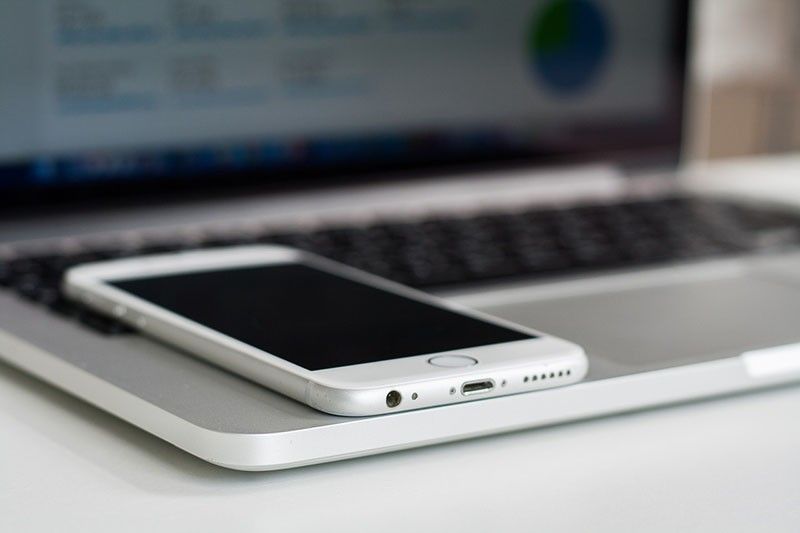Commentary: Lifting the hard cap on digital financial inclusion

Whether you are getting your 11.11 online shopping fix or sending money to a friend's bank account with your mobile phone, a form of Fintech was surely involved. Short for financial services, Fintech is a catch-all term for applying technology to improve financial activities.
And while the term has been around for some time and has become synonymous with improving financial data security and improving financial services' performance, the pandemic has elevated Fintech's status to an essential part of life in the era of COVID-19 and a vital tool for financial inclusion.
Before the pandemic, it was reported that only 32% of Filipinos had bank accounts, 1.9% had a credit card, 4.5% had mobile money accounts and 9.9% made online purchases. According to Bangko Sentral ng Pilipinas Gov. Benjamin Diokno, however, it now seems that these numbers will likely double by the end of 2022, a whole year before the BSP's goal of 2023.
The optimism surrounding the country's financial inclusion landscape can, in part, be credited to the growing number of Filipinos who now have financial accounts such as electronic money accounts like GCash, PayMaya and Coins.ph. Simultaneously, the volume of digital payment transactions such as PESONet and Instapay have also been on the rise, with both increasing by 143% and 820%, respectively, in August alone.
Furthermore, the BSP also recently launched its Digital Payments Transformation Roadmap 2020-2023, which charts the BSP's current initiatives and strategy in advancing an efficient, inclusive, safe and secure digital payments ecosystem. The end goal of the being to hit two birds with one stone by securing the digitalization of payments and increasing the number of Filipinos with access to financial services.
COVID-19 and the continuing lockdown have highlighted the benefits and convenience of digital banking and payments. More than that, however, we cannot understate the broader impact that Fintech and financial inclusion have on the country's economic growth.
According to Diokno, improving the country's financial inclusion has become a compelling strategy for sustainable growth and can aid in the recovery of the country’s post-pandemic economy. World Bank studies also support this, finding that the use of Fintech can contribute to an increase of more than 2% of a country's annual GDP growth.
That said, while Fintech is seen globally as a way to broaden financial inclusivity, it is hard to ignore that it hits a hard cap— or the absolute maximum achievable level— when it meets the threshold of the digital divide. Put simply, the pre-requisite for digital banking is access to the internet and a mobile device, so for those in unserved and underserved areas by internet service providers, these digital financial services are simply inaccessible.
Here in the Philippines, for example, 73 million of 108.8 million Filipinos are internet users. While this places us in the top 20 globally in terms of internet penetration, this still means that 33% of Filipinos are not online and hence fall out of the reach of the BSP’s digital financial inclusion efforts.
Given the hard cap on digital financial inclusion set by access to the internet, bridging the country's digital divide is essential to an inclusive new normal.
On the upside, it seems that expanding access to the internet is a top priority of the Philippines' telecommunications sector.
According to IMD World Digital Competitiveness Ranking 2020, the Philippines ranked in the top 10 globally in telco investments. The coverage of 4G has also improved and now stands at 83.3% according to OpenSignal. Fixed Broadband speed has also improved to 25.34 Mbps, according to Ookla.
In terms of cost, prepaid mobile internet access is now one of the most affordable at P11.25 per gigabyte versus Thailand (with a comparable price of P190.59), Singapore (P35.60), Indonesia (P32.76) and Malaysia (P4.86). These improvements mean that more and more Filipinos are gaining access to the internet and online tools and services.
Indeed, the pandemic has made e-commerce, digital banking and digital payments the new normal for many. The BSP and World Bank have pointed to them as key contributors to the country's economic recovery. However, while the benefits of Fintech are clear, the reach of its benefits are limited by access to the internet.
Realizing the full potential of Fintech in the Philippines is by no means an easy task and will require the joint efforts of government and industry to move the needle forward.
Financial institutions must continue adopting emerging technologies such as machine learning and cloud computing to improve their services and adapt to their customers' changing needs in the new normal. On the other hand, the BSP must continue its push for digital financial inclusion and create a policy ecosystem that encourages innovation.
The telecommunication sector must also continue doing its part by improving and expanding its networks to keep up with the growing demand for reliable internet services. Meanwhile, regulatory agencies and local government units involved in the notoriously cumbersome permitting process for telecommunications towers should continue to ensure permits are fast-tracked to avoid delays in improving internet services.
Lastly, the government must recognize the significance of internet access to all Filipinos and begin investing in digital infrastructure in areas underserved by existing providers.
Fintech may be the future, but there is a hard cap on the potential of digital financial inclusion and bridging the digital divide is the only way to lift it.
Paco Pangalangan is executive director of think tank Stratbase ADR Institute.
- Latest
























